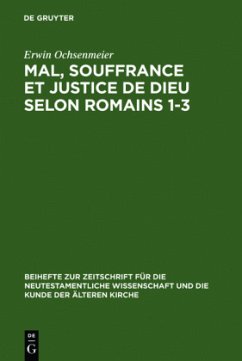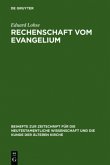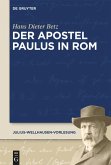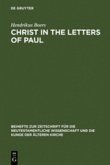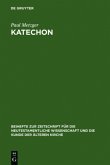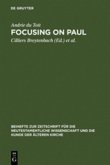Though the Epistle to the Romans repeatedly mentions the issue of evil, suffering, and oppression (Rom 5, 8, 12, etc), one rarely finds studies of its contribution to this issue. Yet the context of Hab 2:4 deals with suffering, oppression, and a promise of deliverance (Hab 1.1-4). This quote starts Paulâ??s demonstration of the Gospel, the fulfillment of the Old Testament promises (1:2). For Paul the Scriptureâ??s function in Romans is to give hope to the believers (4:23 5; 15:4-13).
This study investigates the contribution of Rom 1-3 to the issue of evil and suffering and its link with the theme of the righteousness of God. After a brief survey of recent scholarship it offers a commentary of Rom 1-3 that pays attention to the LXX context of all the explicit Old Testament quotations. This commentary is followed by a study of the use of the Old Testament in Rom 1-3, a justification for taking the LXX contexts into account using data from the history of reading and writing, the use of memory in composition in the first century, and of the role of the figure of David as a model for the believer. The following chapters summarize the relevant theological data of Rom 1-3, survey Rom 4-16 with the same issue in mind and conclude with an interaction with some theological and philosophical literature.
This study investigates the contribution of Rom 1-3 to the issue of evil and suffering and its link with the theme of the righteousness of God. After a brief survey of recent scholarship it offers a commentary of Rom 1-3 that pays attention to the LXX context of all the explicit Old Testament quotations. This commentary is followed by a study of the use of the Old Testament in Rom 1-3, a justification for taking the LXX contexts into account using data from the history of reading and writing, the use of memory in composition in the first century, and of the role of the figure of David as a model for the believer. The following chapters summarize the relevant theological data of Rom 1-3, survey Rom 4-16 with the same issue in mind and conclude with an interaction with some theological and philosophical literature.
"Oberall, this carfully argued and well-written book should generate important further discussion."
Catherine Cavanagh in: Religious Studies Review 4/2008
"Oberall, this carfully argued and well-written book should generate important further discussion."Catherine Cavanagh in: Religious Studies Review 4/2008
Catherine Cavanagh in: Religious Studies Review 4/2008
"Oberall, this carfully argued and well-written book should generate important further discussion."Catherine Cavanagh in: Religious Studies Review 4/2008
